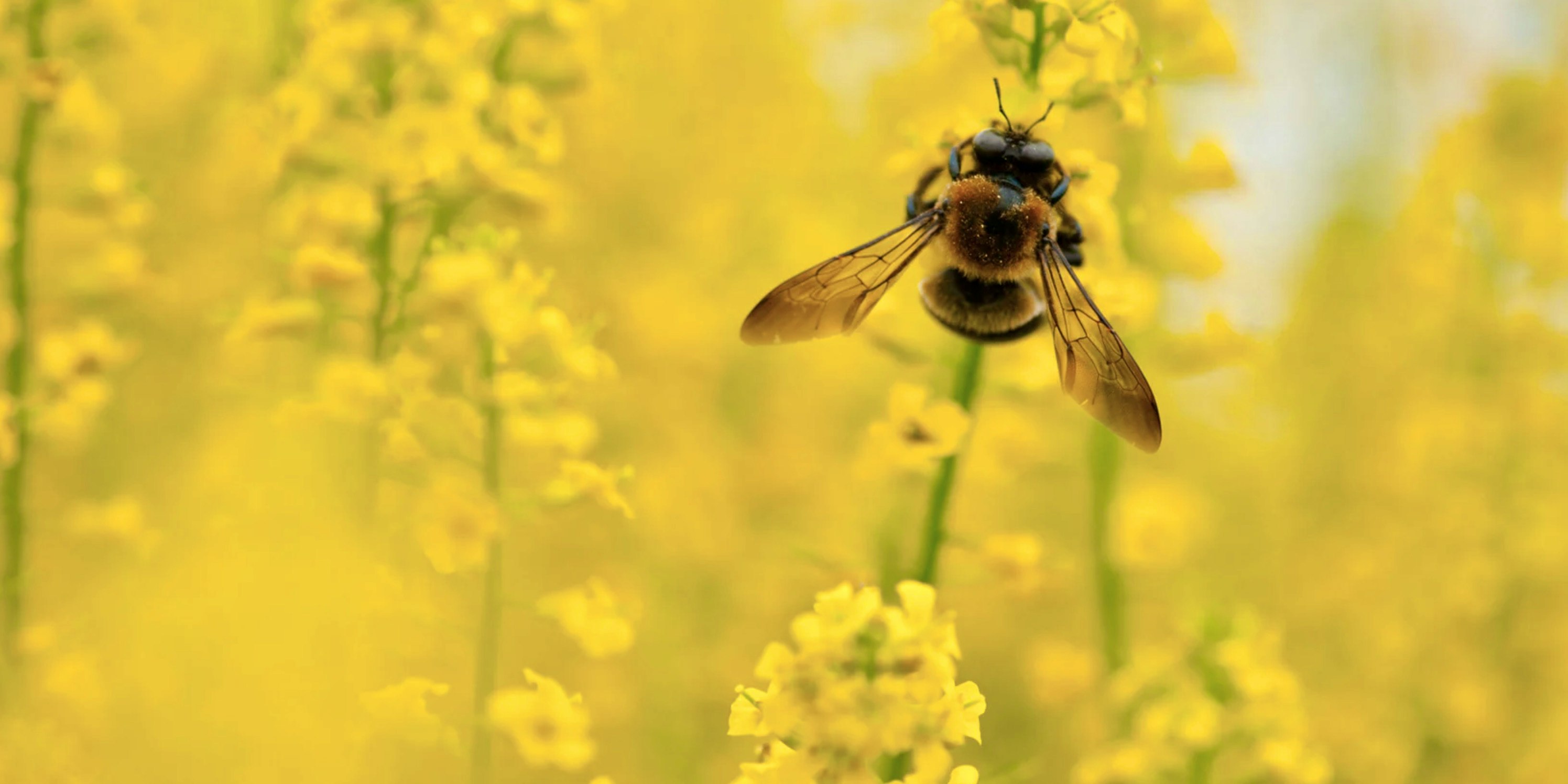Adventure Bees

Do you how bees communicate with each other to share information about food sources? The bees communicate this critical information by performing a type of dance called the waggle dance.
When a worker bee dances for its fellow workers, it uses certain movements, and angles its body in a specific pattern, to tell the others where it found nectar and pollen-rich flowers. The other bees then follow the instructions from the dance and go harvest the food.
Amazing right?
But this isn't the end of the story. If all the bees go and harvest the same food source it will soon be depleted - and the hive might starve.
Adventure Bees
Some bees ignore the dance. They don't do what the other bees tell them to do - they are mavericks. "Adventure bees" like to explore. They say to themselves:
"Bob B. just told us about a great food supply 120 yards away due north. I should listen to Bob and go harvest those flowers -- but I am an adventure bee. I am an explorer, a pioneer. I am going to ignore Bob and go on my own adventure. I may not find anything but maybe I will find a new food supply even better!"
Not all bees can, or should, be adventure bees - A hive needs most workers to follow instructions and go harvest the known food supplies. If all the bees ignored the waggle dance the hive would soon starve too. However, a few adventure bees have very little downside to the hive. They may wander off from the hive, and may go hungry for a while, but their upside is almost unlimited. Having a few adventure bees is healthy for the hive overall because they find new food supplies.
Organizational Adventure Bees
Your organization needs a few adventure bees. You need people who bring in new technologies, new product ideas, and new customers or partnerships that help your company thrive. One challenge is many human resource processes are designed to weed out adventure bees. They encourage drones that follow instructions. Or more broadly, Human Resource's focus leans toward conformity to a common core set of behaviors, and a common set of skills that "align" to the mission of the company.
If you agree you need a few adventure bees you should know giving some of your people the leeway to ignore what everyone else is doing and go exploring is harder than you might think. Hopefully, the upside potential helps you see the challenge as worthy.
First, you have to identify and protect them. You may have to shield them from some of the standard HR processes and you will have to figure out how to define success. Going on an adventure and not finding a new food supply isn't a failure - it's just one area searched and ruled out. However, some in your organization will still see it as a failure. In some ways your adventure bees will have to see the adventure as part of the reward.
Another challenge you will face is defending them against other people that are not "allowed" to be adventure bees and have to follow the existing norms, rules and processes. This again is harder than you think because of people's feelings about what is fair and equitable.
As CIO, I would like to see adventure bees introduce new technologies. I'd also like to see everyone who has the desire to be able to participate. In other words I'd like to democratize the adventure bee concept if possible, appealing to everyone's sense of fairness.
We created the "Technology Incubation Garage" to explore new technologies. Each quarter we have people submit ideas to prototype. One idea is selected, and anyone interested is invited participate in architecting, designing, and building a prototype. The concept that it is open for anyone who wants to join is important. I impressed this on my management team - they must allow some time for people to learn and explore.
The group meets on Friday afternoons for several hours (because those are low productivity anyway) and hopefully carries some momentum into the weekend to spend some personal time exploring new technologies to apply to the prototype.
The process is timeboxed to eight weeks. At the end the participants show the prototype, describe the technoloies they explored and the tradeoffs, and share what they learned. This is the equivalent of the waggle dance.
After a few rounds another executive (outside of Technology) heard about the Technology Incubation Garage and came to see the process in person. They saw that the partcipants were building a prototype that they didn't know if "the business" wanted, nor if it would succeeed, using unproven technology. The executive didn't understand the value and concluded it was a complete waste of time.
That's when I knew it takes both courage and leadership to sponsor exploration. Who are your adventure bees? How are you helping them succeed?
